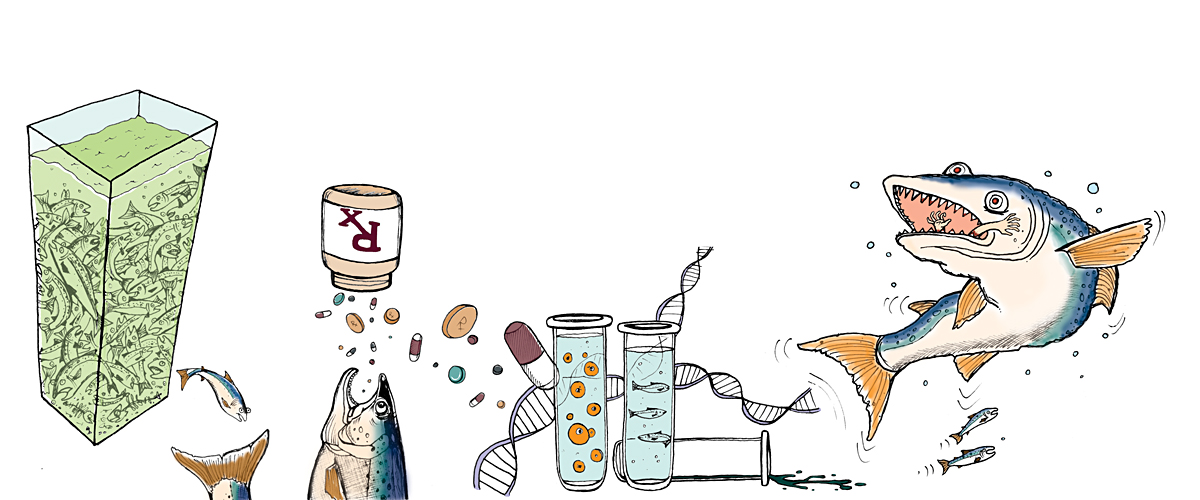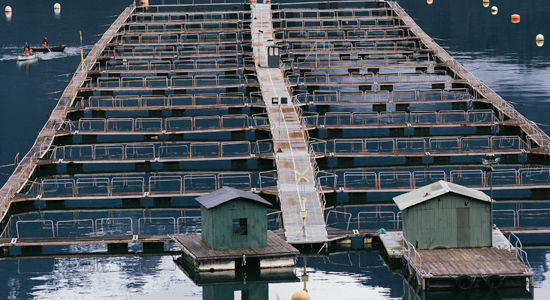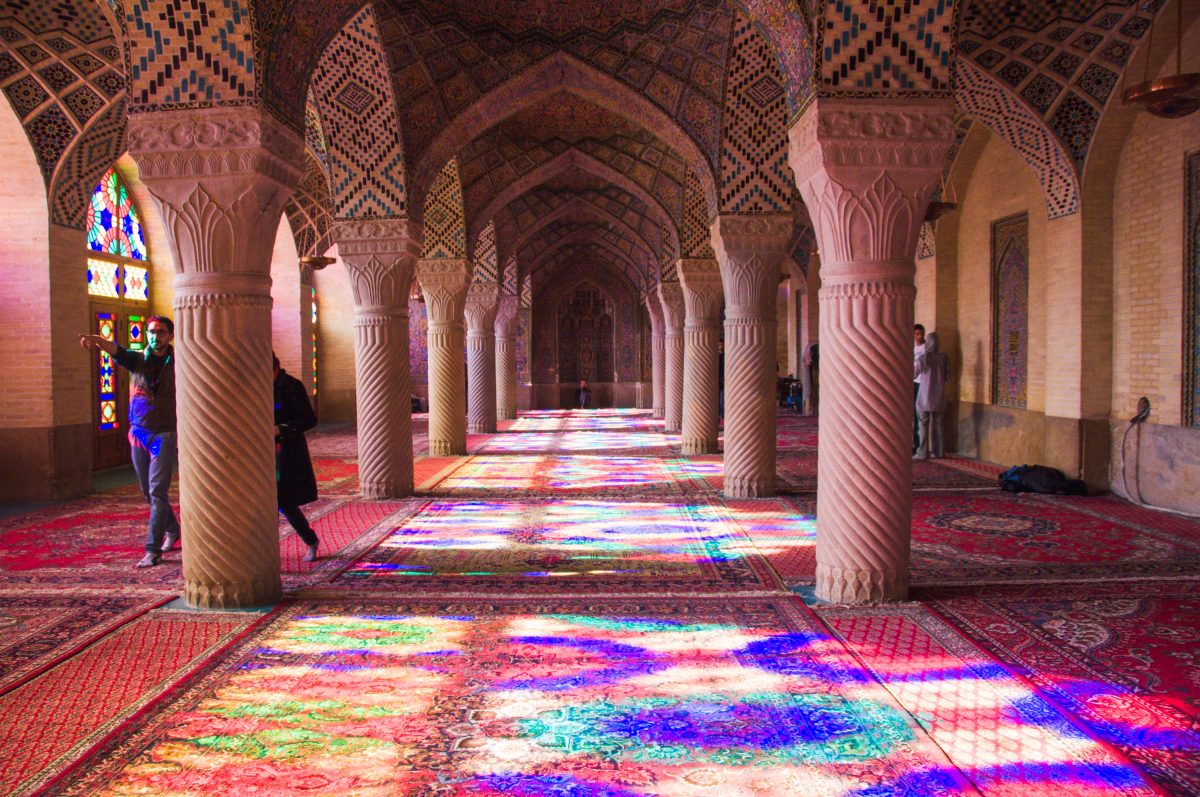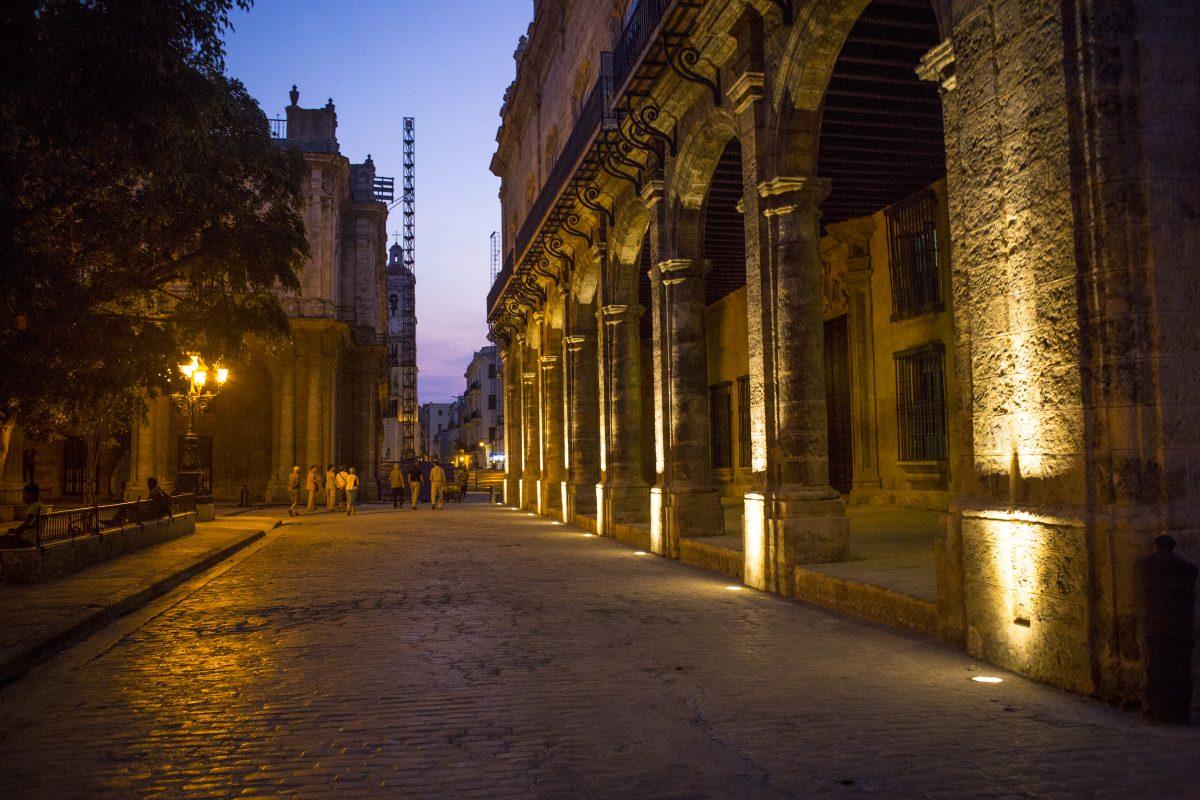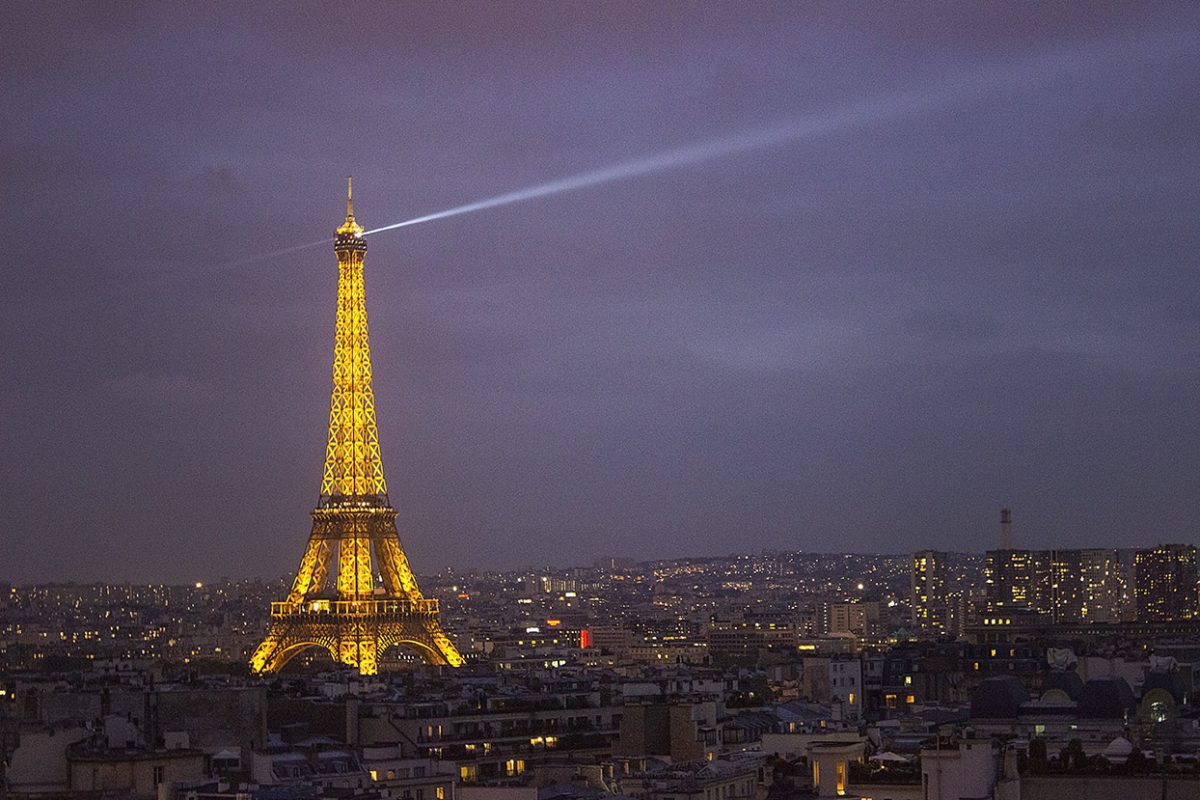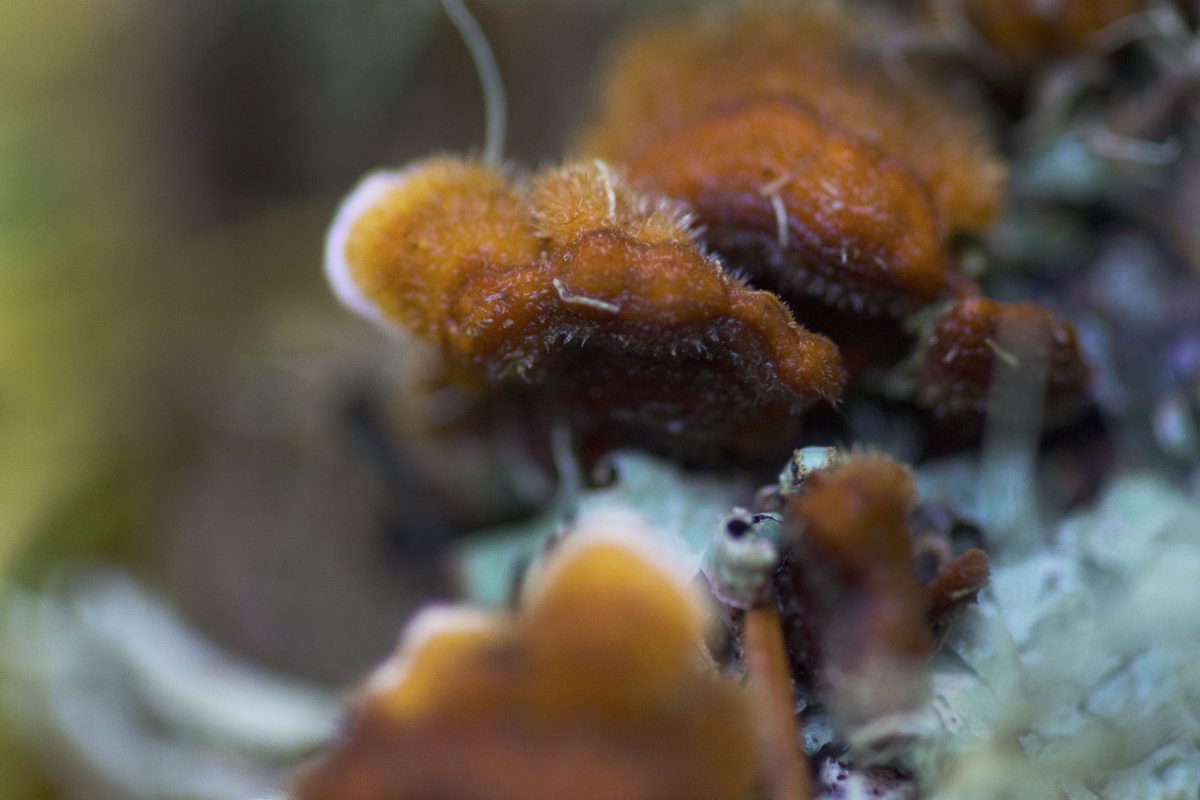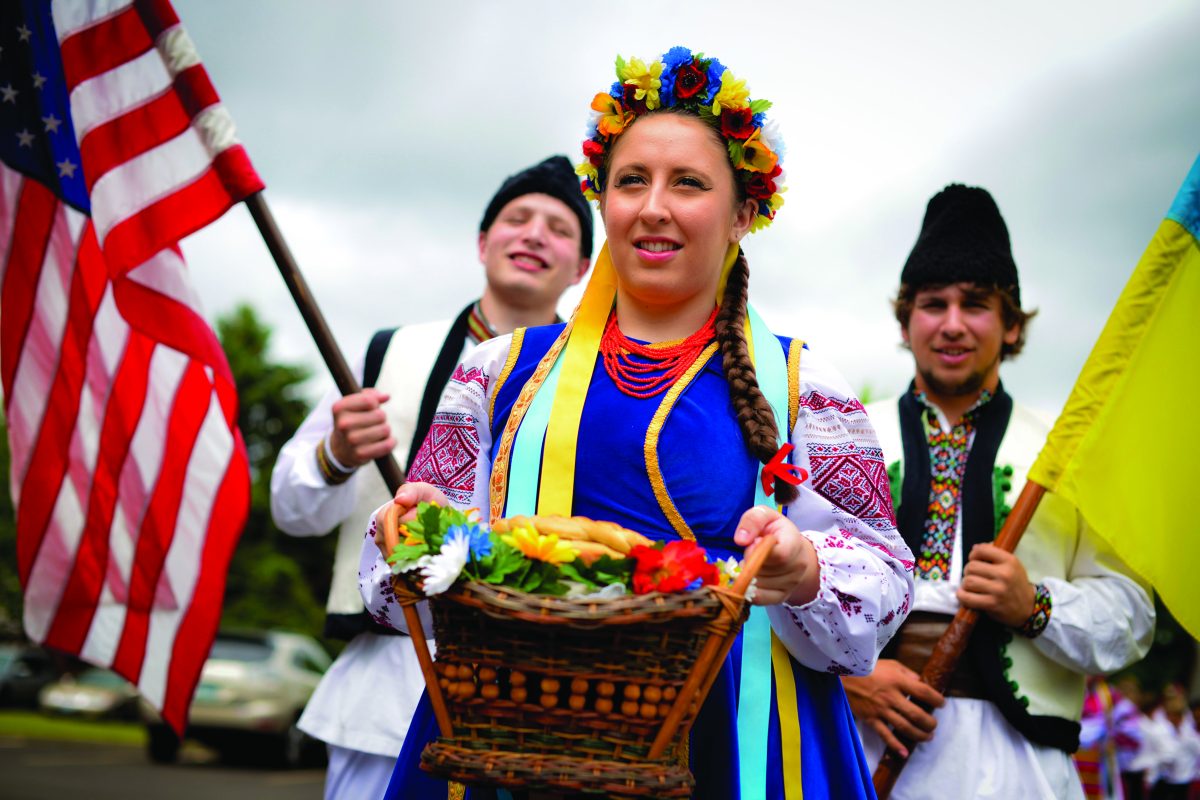Story and Photo by Blake Hamilton
Illustration by Edwin Ouellette
Growing up within walking distance of the ocean, I developed a special bond with its inhabitants. I fear the day I go surfing without fish swimming underneath me. I am not sure if that will ever happen, but with the recent growth of the aquaculture industry, it’s now more a reality than ever.
In recent years, aquaculture, or factory-farmed seafood, has become a booming export business, especially in Chile. I came face to face with this industry in 2009 when I began to research whether or not farm-raised salmon was healthy for consumption. As I dove into information about the industry, I learned about the potential environmental destruction that comes along with raising non-native carnivorous salmon species around the world.
Three months before I traveled to South America, I took a research-based journalism class referred to as “Info Hell.” After spending a term researching the industry of farmed salmon, I wasn’t satisfied with what I had learned. Research behind a computer can be deceiving, especially for those who have an invested interest in the topic.
Before the creation of the salmon industry in the Chilean region of Los Lagos, the city of Puerto Montt was a ghost town compared to its current state. Now the region is home to the second largest salmon industry in the world. Residents living in this region before the industry began to expand never imagined having malls or suburbs. The growth brought with it tract homes and grated roads in the middle of wilderness for transporting salmon from freshwater facilities to the ocean.
Chile became a haven for salmon farming because of its cheap labor prices and lack of enforcement. Multinational corporations like the Norwegian-based Marine Harvest, the world’s leading producer of salmon, were able to operate much differently than in their home countries. Just by looking at the statistics of their antibiotic use in Chile, it is clear they were not operating under the same guidelines. In Chile, salmon were crowded into cages and antibiotics were used in excess to try to prevent and combat illness. As the industry grew, assumptions were made that the producers would regulate and protect the water as if it were their own, but we all know money can make people blind to the injustices they cause.
I look at Chile as a place where multinational corporations went to experiment with farming practices. In 2008, the country’s production of salmon peaked, accounting for 36 percent of the world’s supply, just behind Norway’s 43 percent. This year, Chile is expected to produce less than half of their 2008 gross production, with other estimates as low as 25 percent.
I visited the region of Los Lagos for my first time in March 2009. My initial reaction to the city of Puerto Montt was that it was not dependent on one industry. Yet, the headlines in the newspapers indicated that the decline of the salmon industry was directly affecting the region’s economy. My interest was piqued, and I planned to return.
I was in Casa de Margouya, a hostel fifteen minutes from Puerto Montt, about to embark on a twenty-one hour boat ride to the southernmost region of Chile. I had a week left before school in Argentina started, and I wanted some peace and quiet before I returned to the concrete jungle that was Rosario, Argentina. Eating my last breakfast in the hostel, I overheard a woman from Portland, Oregon, talking about a place called Parque Pumalin. I spoke with her and that was it; a couple days later, I was waiting for the boat that only comes once a week, delivering its passengers to an unexpected paradise.
My boat ride was an adventure. Parque Pumalin was amazing. Even today, when I am stressed out and overwhelmed by the confinements of a city, I take a deep breath and try to recreate the remoteness and pristine qualities of its unparalleled biodiversity. You could hike for days and not see a soul.
Enveloped by walls of trees, I felt a solitude like never before in my life. I looked out the cabin of the boat for that perfect shot that could encapsulate where I was. I was totally engulfed in conversation and before I knew what was going on our boat had broken down and we were being towed to a storage unit at the end of a salmon farm.
“Shut up and start shooting,” my mind said. I found a spot against the entrance of the cabin where I braced myself in an attempt to get non-shaky footage of the cages that held nearly a half-million fish. Our arrival was not warmly welcomed and we were quickly retrieved from the floating dock and escorted to land. Within minutes, security cameras recorded us dipping our feet into a disinfecting agent as the workers sprayed down the dock behind us. We were in a barbed wire-enclosed compound of one of the largest salmon companies in Chile.
After being denied permission to interview the workers, I wanted to record my conversations and snoop around, but I wasn’t ready to be a person of interest for a multinational corporation. So instead, I cleared a few rocks and settled in the sand to watch the seagulls bicker at one another as they stood around the circular net pen.
I could not stop my mind from racing. I had to do something—I could not believe the scope of aquaculture. I read predictions saying that by 2030, the worldwide consumption of aquaculture would surpass wild fish supplies. Yet many people are unaware of the inner workings of this newly developed food sector. I was determined to do a little more investigating. When my second semester in Argentina ended, I went back to Puerto Montt instead of packing my bag and moving from bed to bed on the daily.
My second time around, I still did not speak grammatically correct Spanish, but my enthusiasm and body language fueled conversations until I was hoarse. I had a little less than three weeks, and I was determined to figure out how to use a video camera to record interviews with anyone willing to talk to me. I set up my office in Casa de Margouya, the same hostel I stayed in before. From there I commuted to Puerto Montt every day past densely packed warehouses with acres of open land behind them.
I felt awkward traveling on the bus knowing that the majority of the passengers were being negatively affected by the collapsing industry. But what was even more difficult for me to grasp was the idea that Puerto Montt might be abandoned in the future as the industry looks for cleaner waters to the south.
It was my first attempt at making a documentary and it will not be my last. There is a certain joy you get when strangers open up and talk about their experiences. Journalism allows one to enter people’s lives for brief segments of time and listen to their stories. It fuels curiosity and takes you to unknown streets where you hope you are knocking on the right door. You get in cars with strangers and cross your fingers that your judgment of character will not land you on the side of the road. As a journalist you never quite know where you are going to end up by the end of the day.


